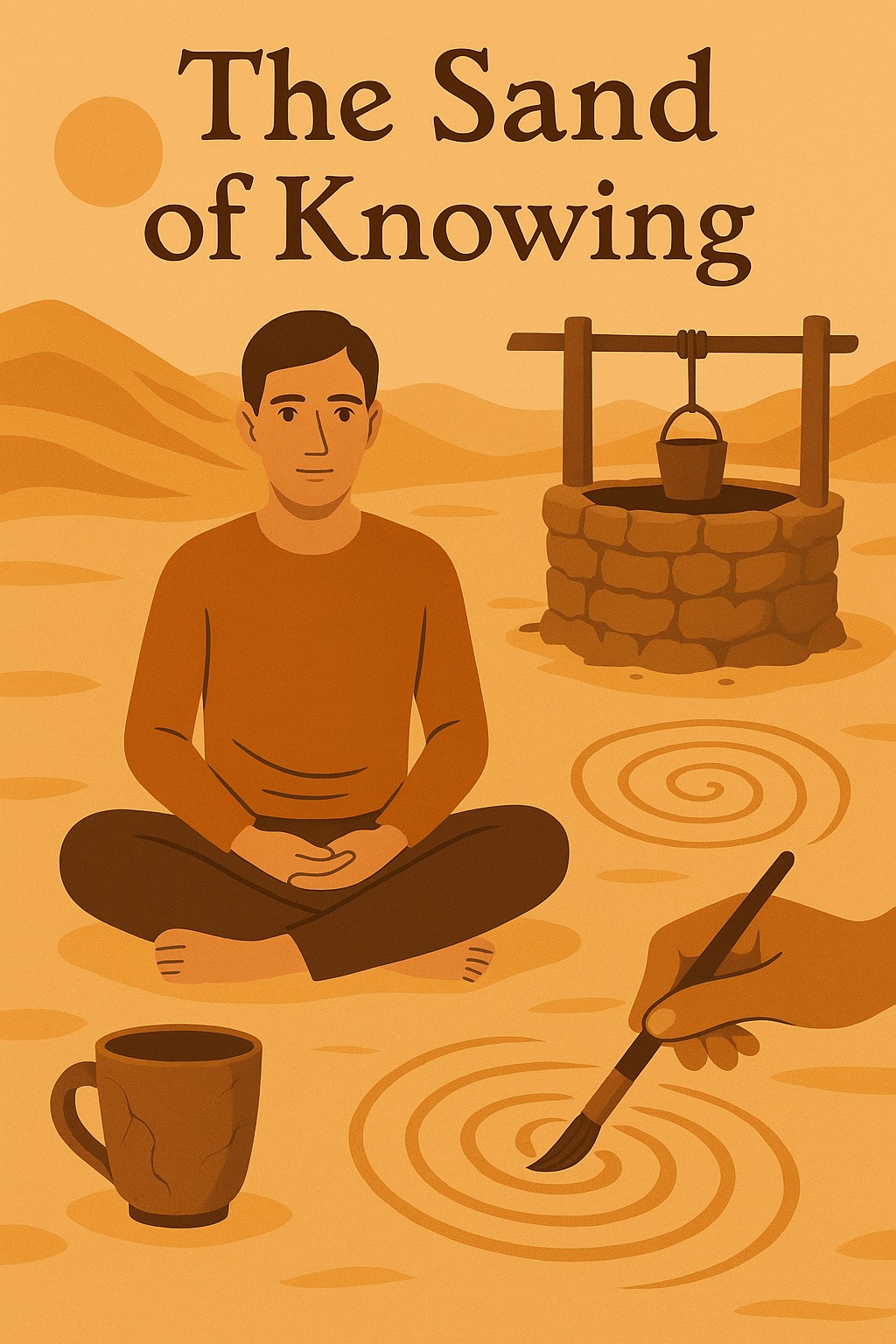In the heart of a sun-scorched desert, there was a village surrounded by rolling dunes and cracked stone ridges. Life thrived there only because of one thing—water, drawn carefully and faithfully from ancient underground wells passed down through generations.
Nabur, son of the wellkeeper, was a bold young man with fire in his chest and impatience in his blood. His father taught him how to tend the well, how to listen to the creak of the pulleys, and measure the water’s rise by sound. But Nabur had little regard for the old ways. He believed he could bring more water faster, and win glory for himself and his family.
So, one evening, while his father rested, Nabur dismantled part of the well’s protective stone ring and lowered a wide-bucketed machine he had built from scraps. He forced it deep, far deeper than the elders had ever dared. The sand trembled. The bucket came up brimming with water—but the earth around it began to crack.
By dawn, the well’s lower wall had collapsed, caving in part of the underground channel. For days, the water flowed wild and muddy. By the end of the week, it slowed to a trickle.
His father did not strike him, nor yell. Instead, he looked into Nabur’s eyes and said, “Go to the desert. If you find wisdom, return. If not, do not come back.”
Nabur wandered alone, full of bitterness, until the heat and hunger drained his defiance. On the second day, he came upon a strange sight—Charilla, a potter’s daughter, kneeling in the sand by a broken kiln fashioned of wind-swept clay. She shaped wet earth with her hands, her fingers moving as if they knew the shapes before they formed.
“Are you lost?” she asked, without looking up.
“I’m looking for wisdom,” Nabur said. “Do you have any?”
She laughed, light and dry like sand blowing across stone. “I have sand and patience. That’s all.”
She handed him a cup, slightly lopsided, its surface marked with quiet cracks. “This took me days. You see flaws. I see lessons.”
Nabur scoffed. “A cracked cup won’t save a village.”
“And a clever machine destroyed yours,” she replied without malice. “You want wisdom to fix, not to know. But sand doesn’t obey hammers.
Nabur left her, annoyed but unsure why her words clung to him like heat.
On the third day, his feet bleeding and lips dry, Nabur found shelter beneath a red stone arch. There sat an old man, Ramiloch, brushing lines of ochre and bone across the stone in vast, slow spirals.
“What are you painting?” Nabur asked.
“Stories,” Ramiloch said. “Storms. Changes. Choices. All written in the dust.”
Nabur tilted his head. “Storms don’t have stories. They just destroy.”
Ramiloch dipped a brush into a gritty red powder. “So does anger. So does pride. But destruction isn’t the end of the story. It’s just the middle.”
He pointed at a swirl in the painting—sand coiled like a snake around a broken line. “This one here? That was a well, once. A man dug too deep, too fast. Didn’t see the shift in the winds. The dune swallowed it. But the village built again, wiser.”
Nabur blinked.
“I’m not the only fool, then,” he murmured.
Ramiloch smiled. “No. Only the next one.”
Nabur sat beside him in silence for a time. Then, he moved on.
By the seventh day, Nabur collapsed beside a pillar of stone that jutted from the earth like the spine of the world. His skin burned, his water gone, his anger shriveled. He dreamed of the well, full and clear—and then saw it break again, over and over.
When he woke, Saphirael, a blind woman robed in ochre, was sitting beside him, her hands in the sand.
“You speak in your sleep,” she said softly. “And you don’t listen when you’re awake.”
Nabur barely lifted his head. “Then why are you still here?”
“Because you’re close,” she said. “Close to hearing.”
She took his hand and pressed it into the sand. “Feel. Let go of thoughts. Let the sand speak.
He resisted. Then he surrendered. And slowly—minute by minute—he noticed the shifting temperatures, the differences in texture, the way the grains pressed together yet stayed separate. Nothing hurried. Nothing wasted.
“What does it say?” he whispered.
Saphirael tilted her head. “That you’re not broken. Just cracked. Like Charilla’s cup. Like Ramiloch’s storm. Like the well. But cracks let truth in.”
That night, Nabur dreamed again—but this time the well did not break. Instead, it stood quiet and still, as sand flowed in slow circles around it.
He returned weeks later.
Not triumphant. But changed.
He rebuilt the well not for speed but for stability, learning from the dunes how to curve the stone, how to breathe with the wind instead of fighting it. He spoke less. Listened more.
The villagers murmured. His father said only, “You found something out there.”
And Nabur replied, “Yes. I found the sand.”
The sand didn’t teach him facts. It taught him time.
It taught him that wisdom is not found. It is earned—grain by grain.

